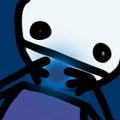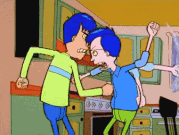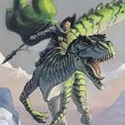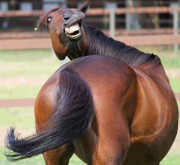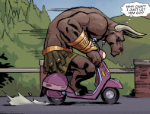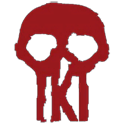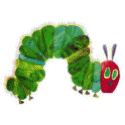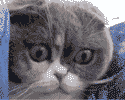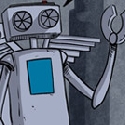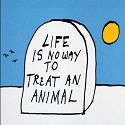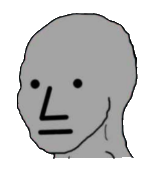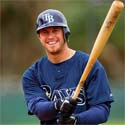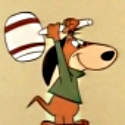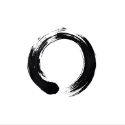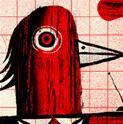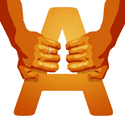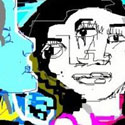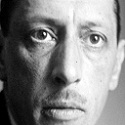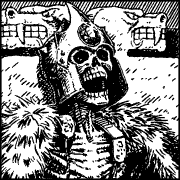|
Time for a 2014Q1 update, since today's the last day in March! I have read 15 books in 3 months, so if I continue at the same pace, I should easily surpass my goal of 40 for the year, and might even be able to reach 52. 1. REAMDE, Neal Stephenson - Not a bad overall (techno)thriller novel, and a nice non-cyberpunk entry from Stephenson. I never could get into his Baroque Cycle books, and Anathem and Cryptonomicon haven't called to me yet. The longest Stephenson novel I have completed, and pretty entertaining overall. 2. Let's Pretend This Never Happened, Jenny Lawson - Hilarious from start to finish. If unsure if you'll like her writing style, check out her blog (thebloggess.com). 3. The Mallet of Loving Correction, John Scalzi - I love Scalzi, and this is a collection of his Whatever blog posts. Yes, you could just use the internet, but it's not bad in book form either. 4. Starship Troopers, Robert Heinlein - Bought 4 years ago, didn't finish the first chapter before I got distracted by other things. Finally got around to it and it's good! Not quite as pro-military as some people say it is (at least, I didn't feel like this was just a hoo-rah for the Marines). Also interesting from the perspective of one who's read The Forever War and Old Man's War. 5. For The Win, Cory Doctorow - TBB Secret Santa delivers! Fun overall read, if aimed at a younger audience (woo YA fiction). 6. Promise of Blood, Brian McClellan - TBB Secret Santa delivers again! Definitely similar in style to Brandon Sanderson and the Mistborn series, you can see his influences in the work. Looking forward to the second entry coming out in May. 7. The Ghost, Robert Harris - Wanted to read because I saw The Ghost Writer (Roman Polanski's movie based on this book) a few years ago. Good book, even if it was mainly fleshing out a story I already knew from the movie. 8. Zen and the Art of Motorcycle Maintenance, Robert Pirsig - gently caress this book takes longer than it should. I don't know, I didn't hate this book, but I sure as gently caress didn't love it either. I was originally reading this to my wife, and she just couldn't handle it about halfway through, it's just too dense on the philosophy stuff for her. I even minored in philosophy and it seems like he takes too long to get to the loving point, and his expository passages about the main character's past seem overdone. 9. Snow Crash, Neal Stephenson - I read this book to my wife in an effort to expose her to fun cyberpunk with some humor. She loved it. It's an old re-re-re-re-re-read for me, and I still like it. 10. The Human Division, John Scalzi - More Scalzi, the latest in the Old Man's War universe. Focuses on Harry Wilson, the buddy of OMW's protagonist John Perry, who is working with the diplomatic corps. A nice change of pace, given there's little to no combat, so the focus is on diplomatic relationships between species. If you liked OMW, you'll like this. 11. The Alloy of Law, Brandon Sanderson - A new entry in the Mistborn universe, set about 300 years after the conclusion of the earlier trilogy, so all new characters, with the same magic system present. The story itself was good overall, interesting villain, likable protagonist, nice support cast. Some people criticize Sanderson's inclusion of new metals into the existing universe/magic-system, as it's never explained why these new metals didn't exist in the old series (had they not been discovered yet? was there some arbitrary reason they were ignored? are they just the macguffin of the moment?), and I understand why those criticisms have merit. Still didn't detract from my overall enjoyment, so it was a good read. 12. The Way of Kings, Brandon Sanderson - Ambitious! If Sanderson pulls this series off, then bravo. Buckle up, folks, it's gonna be a long one. It's good though, and at least Sanderson doesn't suffer from GRRM-esque "must kill everyone at some point or another" sadism  13. Heir to the Empire, Timothy Zahn 14. Dark Force Rising, Timothy Zahn 15. The Last Command, Timothy Zahn - Going to deal with all three of this series ("The Thrawn Campaign"/trilogy) together here. Set in the Star Wars universe approximately 5 years after the second Death Star explodes and the old Emperor dies. The New Republic is A Thing and the remnants of the old Empire are still around, making trouble for the New Republic and trying to regain power. Leia and Han are hitched and expecting twins, Luke is no longer the last of the Jedi, as he's training his sister (and eventually her kids), there's a Dark Jedi somewhere (because of course there is), and some other Force-sensitive people come to notice. The titular Thrawn is a brilliant tactician who happens to be one of the old Grand Admirals of the Empire who escaped death at the Battle of Endor by virtue of not being there in the first place, and he's making lots of trouble for the New Republic because he's better at warfare than they are. Whatever, you know the universe. It's a good overall story, although it suffers a bit by arbitrary plot point-counterpoint-countercounterpoint because it feels a bit too convenient that the two opposing forces seem to guess the others' action a bit too well. For example, the New Republic will decide to attack planet X while leaking information and making it look like planet Y is the target, so Thrawn obviously goes "well it looks like they're going to attack Y so clearly the target is X!". It's all a bit too convenient. Nevertheless, it's a good series, flies by pretty quickly (for the good reasons, not because it's shallow), and is reported to be one of the best Expanded Universe works. If you're a Star Wars fan, you'll probably enjoy this. Time to get back to reading for Q2 starting tomorrow 
|
|
|
|

|
| # ? May 31, 2024 19:54 |
|
14) Fudoki by Kij Johnson Absolutely the most cat-thing I've read; not just because it was full of cat things, but because it started out wonderful and engaging and just sort of got sharp and awkward by the end. longer goodreads review 15) We Have Always Lived In The Castle by Shirley Jackson So engaging and weird and upsetting. Shirley Jackson always has this way with making people just seem dismally hosed in life, and the line "I am going to put death in all their food and watch them die" was an amazing piece of hosed up catharsis. The book's like a hundred pages long, everyone should give it a shot. goodreads review 16) Kushiel's Dart by Jacqueline Carey gently caress this book. Not for its sexual content at all, that was fine, but the horrible loving plod plod pointless pacing gently caress. It started out fantastic and engaging and hilarious in its synopsis (a pimp constantly sends out his finest ho to get knocked around so she can afford a sweet back tattoo is what I called it) but then it just kept going and going and loving going on forever about nothing and when the million pages were finally finished, it turns out I was at book one of a series. I'm done with long genre books for a little while, they wind up making me too upset. goodreads review 17) Death Masks by Jim Butcher I was glad my wife started this book around the time I finished Kushiel; we're reading Dresden together and I needed something short and quick and snappy and pointless. Great fuckin' fun story about some fallen angels, vampires, wizards and I read it in maybe five hours? goodreads review 17/60 I said I was going to do better for reading non-White Male Genre Authors for March and I would have really bumped my ratio higher if it wasn't for Kushiel's Dart taking me forever. It's not that I read slow, it's that that book started making me hate the idea of relaxing with a book. Outside of my Dresden rereads and this Lightspeed anthology I've been picking my way through between books, I'm just saying gently caress genre for April altogether. I'm starting April with Mo Yan and trying to stick to authors who have won Nobel Prizes, or at least want to tell stories that aren't about how the notEuropeans needed to fight the Dragon with Purple Prose to help the loving King be Imperialistic and ugh. Kushiel's Dart really rubbed me the wrong way.
|
|
|
|
The Clowning posted:January: February: 4. The Signal and the Noise: Why So Many Predictions Fail - But Some Don't by Nate Silver 5. Bossypants by Tina Fey Both were great. March: 6. Galveston by Nic Pizzolatto 7. Raising Steam by Terry Pratchett 8. Lost At Sea: The Jon Ronson Mysteries by Jon Ronson Why yes, I've been watching True Detective. And I love Jon Ronson's books.
|
|
|
|
Whalley posted:I said I was going to do better for reading non-White Male Genre Authors Those are pretty hard to come by. I'm of course a month too late with these suggestions, but if you ever want to give female or non-white genre authors another try, consider: - Catherynne M Valente with The Orphan's Tales. Fantastic Matryoshka doll-like story that is very well written, funny, endearing and sad. - Connie Willis with The Doomsday Book and/or To Say Nothing of the Dog. The first is a book about the plague that is funny at times despite the very bleak setting, the second is a fun mystery novel. - Ted Chiang with Stories of Your Life and Others. Not really genre fiction and still American, but absolutely brilliant collection of award winning short stories. - Elizabeth Wein with Code Name Verity. It's historical fiction (WW2) that's hard to describe beyond "really good" without spoiling too much. It's technically YA, but great despite it.
|
|
|
|
Walh Hara posted:Those are pretty hard to come by. I'm of course a month too late with these suggestions, but if you ever want to give female or non-white genre authors another try, consider: I've got Connie Willis on my to-read list. Honestly, it's not that I have a super hard time finding non-white non-male genre authors (I grew up in a single-mother household that worshiped Octavia Butler, Diana Wynne-Jones and Marion Zimmer-Bradley; two of my favorite modern authors are Kameron Hurley and G. Willow Wilson) so much as... you know, making myself read them instead of the sheer amount of terrible books by white men that I wind up picking up.
|
|
|
|
Haven't actually stopped in to post what I've been reading yet, so I guess I'll be making this a quarterly thing. 1. Les Fleurs du Mal, by Charles Baudelaire, trans. Richard Howard I liked this one a fair bit for the variety of the images, but I feel like it must be much better in French. Then again, I imagine this problem is endemic to poetry translation. 2. On Becoming a Novelist, by John Gardner Having already loved his The Art of Fiction, I found this one very rewarding, too. If I'm remembering The Art of Fiction correctly, this one is very different, dealing less with technical aspects of writing and more with the lifestyle that you have to adjust to, and the type of person that you have to be. Still, very valuable. 3. The Lottery and Other Stories, by Shirley Jackson Some of the stories in here were very, very good (and "The Renegade" might actually be the most disturbing short story I've ever read), but then some were very boring, and I also don't quite see what was achieved by the continual use of James Harris (or at least the name). 4. Anna Karenina, by Leo Tolstoy, trans. David Magarshack Mostly very good, but sometimes I really wanted to know what was going on with a different storyline than the one that happened to be receiving focus. I also had a hard time staying sympathetic with Anna once she started becoming more paranoid about what Vronsky was doing. But that probably just means I haven't lived long enough to fully get this book, and I certainly don't mind the thought of returning to it in maybe ten years or so. But it might help that I made a point of powering through this in about nine days before the end of winter break. 5. The Ode Less Travelled, by Stephen Fry This is actually the first time I'd come across anything involving Fry, but I was pretty impressed. Not all of the forms that he talked about were interesting to me (I don't see the value in, say, the sestina, and the endless variations on the rondel were tiring), but for the most part I found this very helpful and admire his scholarship. 6. The Sound and the Fury, by William Faulkner Easily the best book I've read so far this year. Everything involving Benjy, in particular, was hideously moving, and I just loved the language and the way that the story was brought out. Looking forward to reading more Faulkner. 7. Daisy Miller, by Henry James The first full book I've had to read for the class I'm taking on James at the moment. It's probably my least favorite I've read of his so far, and I bet that's largely because it wasn't long enough for me to invest very much in it. 8. The Paris Review, Issue 206, ed. Loren Stein Read this one for a class I'm taking about small press publishing. I don't have much to say; I hated everything except the interviews (though I like this tradition enough that I've gone through a fair bit of their archive online), in terms of both form and content. I especially hate Loren Stein for publishing (and therefore further enabling) such pointless and poorly-written crap. Also for publishing one of Franzen's self-indulgent and vapidly-annotated translations of a Karl Kraus essay. 9. The Beast in the Jungle, by Henry James Kind of a weird one for James in how focused it is on a single concept and a single strange character trait, but goddamn if this story's big line didn't get me the first time I read it. 10. The Portrait of a Lady, by Henry James More immediately engaging than usual for a James, I suppose, even in spite of its length. Overall I liked this one a lot. But Jane Campion's so-called adaptation of it is horrible on almost every level. Don't watch it. 11. Lapham’s Quarterly: Animals, ed. Lewis Lapham This is simply a wonderful magazine (website). Every issue discusses a new topic, and in doing so it draws on literature from all over the world and from as many moments in time as possible; this issue had the obligatory Moby-Dick excerpt, as well as Kafka, Dostoevsky, Steinbeck, and many more. It's sort of a historical mosaic made out of both literary and visual art. 12. Tenth of December, by George Saunders What an annoying writing style, and what a waste of talent. He has lots of interesting ideas for stories, and he's very good at fully using all of his elements, but overall I'm just not charmed by his particular brand of satire; I don't find him funny, I don't like the sound of his style, I don't like the repetitiveness of his themes, I don't like his motif of having characters speak in some "quirky" way as a result of drugs, and overall I wish he had let his ideas speak more for themselves and spend less time on supposedly-funny product names. But apparently he's huge right now, and I'm one of the only people I know who feels this way. 13. Theogony and Works and Days, by Hesiod "Theogony" wasn't really interesting because of how much of it has trickled down, but "Works and Days" was kind of amusing. 14. Ada, or Ardor: A Family Chronicle, by Vladimir Nabokov Once again I'm left in awe of Nabokov; the depth of his vocabulary is astounding, as is the way he keeps finding connections between the sounds of words (as with all of the puns on the name of the heroine), and if one ignores the specific context of his chronicle his portrayal of sexual jealousy is astounding. Unfortunately, it felt at times that, linguistically, he went after lots of low-hanging fruit and perhaps used too much alliteration even for my tastes. Between that, the relative lack of emotional connection (though it's better in this regard than Pale Fire), and the amount of time he spends on certain digressions, I can't rank this one as highly as Lolita. 15. The Ambassadors, by Henry James Probably the best book I've read by him so far, in light of just how many ideas he explored with it, the greater nuance of his characters, and the full development of his style of inhabiting his characters' thoughts and seeing them through every consideration. It's not as immediately exciting as The Portrait of a Lady, and it's probably even lighter on plot, but all in all it's still pretty good. 15/52 4/30 over 300 pages. Mr. Squishy posted:The Europeans was a slight but fun James book which hammers home the message of the upright, true, if boring Americans clashing against the devious, perverted, interested Europeans. From my survey of James (this and Roderick Hudson) this seems to be an idée fix. He does not seem to be my author For what it's worth, those are two of his earliest works. I agree that his fixation on America vs. Europe is tiresome, but based off of your summary of The Europeans, his later works at least handle it with more nuance and skill; I didn't get as much of an impression of bias in, say, The Ambassadors. All Nines fucked around with this message at 21:10 on Jun 30, 2014 |
|
|
|
March - 1 8. Wolf Hall (Hilary Mantel) Just the one book read this month. I really enjoyed Wolf Hall, I haven't really read anything like it before. I only picked it up because I found it in a charity shop for a couple of quid but I'm glad I did and I'll definitely read Bring up the Bodies at some point in the near future. I've been slowly grinding through the Politics by Aristotle over the last few weeks. It's crunch time for my degree so reading time is limited at the moment but I'm still comfortably on target. I'll probably up the goal to 40 because I suspect once I'm done studying I'll rocket through 26. Once I finish with Aristotle it's on to The Prince and then I have a whole wealth of things to read. Year so far: 1. The Ragged Trousered Philanthropists (Robert Tressell) 2. Always Managing: My Autobiography (Harry Redknapp) 3. Things Fall Apart (Chinua Achebe) 4. Hyperbole and a Half: Unfortunate Situations, Flawed Coping Mechanisms, Mayhem, and Other Things that Happened (Allie Brosh) 5. Dracula (Bram Stoker) 6. The Drowned World (JG Ballard) 7. The Tudors: The Complete Story of England's Most Notorious Dynasty (G.J. Meyer) 8. Wolf Hall (Hilary Mantel) Total: 9/26, 2/2 women, 1/2 non-white people, 2/13 non-fiction
|
|
|
|
Strong Mouse posted:1. Worm wildbow (J McCrae) Yeah... 1 book read during March... My Challenge is going great. Between doing homework and finding it hard to get interested in books, I am having trouble. I don't expect this to last overly long, as I have Spring break coming up, and no real plans. I have read 12 of my challenge of 75 books. 12. Surely You're Joking, Mr. Feynman Richard P. Feynman - This months Awful Book of the Month. I had been wanting to read it for a while, so when I saw it was the book of the month I jumped in and read it. I kind of found it mediocre. He did all these interesting things, and he met all these great people, but in the end the book felt it was lacking something to tie it together. I am glad that I read it since I generally stay away from biographies, but I probably won't ever re-read it. If you usually don't like biographies, you should give this a read though, as it really isn't bad. My goodreads profile in case you want to see my reveiws of the books I have read. Some reviews are longer than what I have here, some are shorter. It really depends on the mood I am in when I write each thing respectively.
|
|
|
|
11-13. Prince of Thorns, King of Thorns, Emperor of Thorns by Mark Lawrence. I'd been putting this trilogy off for a while now, as the reviews and chatter I've read have been fairly mixed. People seem to either love it for it's gritty, grimdarkness and morally grey characters, or hate it for it's gritty, grimdark, morally reprehensible characters. I hate to pull a South Park, but I think I'm somewhere in the middle. I enjoyed the entire trilogy quite a bit, as a whole. Unsympathetic characters and actions don't offend me, and the world the story occupies is interesting, well written, and fascinatingly revealed. I feel the quality of the third book made the initial two more tolerable. By the end, the buildup and development of the setting was enough to carry me through. On the other hand, there was basically no characterization apart from the protagonist. The protagonist himself was an arrogant, merciless, murderous ubermensch who is exceedingly cunning and clever, a tactical genius, an expert swordsman, and a brutal warlord. To top it all off, he begins his journey of being the best at everything ever at 14 years old. He finishes the trilogy around 20 years old, which is still about 2 years shy of the way his character speaks and acts for the entire tale. Suspending disbelief to read about an unlikable, irredeemable shithead who's the best at everything is difficult enough without constantly being reminded that he's 14 years old. It's the same feeling as watching precocious children in movies read dialogue written by adults. Only in this case, the child actor is also commiting a good amount of rape and murder. 14. The Women and the Warlords by Hugh Cook For some reason, my feelings at the end of the Thorns books reminded me to keep reading Hugh Cook's Chronicles of an Age of Darkness. I remember the first books in the series were poorly paced stories filled with really interesting and creative scenes playing with traditional fantasy elements. I also remembered a lot of well written characters with complex realistic motivations, and a grim setting detailed with a wry sense of humour. This book was lacked the majority of the humour, but maintained the other good stuff with a better pacing. I liked this book very much, though I'm not sure how much I enjoyed it. The events detailed were not particularily pleasant. It followed the struggle for survival of a woman slave in a horrifically oppressive male dominated fantasy society. Thorns and this book had similar elements in their worlds, but the main difference to me lies in their portrayal. Hugh Cook's holds nothing back in his depictions of the terrible abuse women face in "gritty" male dominated fantasy worlds, and the effect is feelings of hopelessness and depression, in spite of the protagonist's successes. Thorns depictions of brutality, violence, and oppression are typically small asides, matter-of-fact statements, or scenes built for shock value. (All of which are fairly typical in "gritty" fantasy.) Thorns says "Look at the horrible things our badass morally grey hero does!", while Cook shows what a society filled with these events would do to the people who inhabit it, from the point of view of someone struggling to free themselves from their yoke. Mark Lawrence throws in violence and oppresion to shock people and make his hero seem more of a brutal badass. His work tries too hard to be grimdark. Hugh Cook is a more thoughtful writer who is better at showing than telling, and actually has something important to say. His story was just grim. 15. The Walrus and the Warwolf by Hugh Cook. This was my favorite book this month, and I'm going to write the least about it. It's a non-stop, breakneck paced, swashbuckling adventure story. It reminded me a lot of Jack Vance's Cudgel's Saga in both character and plot. The arrogant, clever protagonist pinballs from place to place, misadventure to misadventure, constantly witting his way into and out of dangerous situations and misunderstanding. The story is full of wit and humour, and occasionally pokes some fun at organized religion and cult behaviour. Unlike Thorns protagonist, this hero has fatal flaws and grows as a person. It's fun, it's exciting. It's great fun and excitement. This book, and internet reading afterwords, made me understand that each of Hugh Cook's novels takes place from the point of view of a different character in in the same world and same 30 year time span. The characters cross paths with each other constantly, and each new book/viewpoint can completely change the reader's understanding of a character or series of events. It also fully revealed the post-apocalyptic nature of the setting, as characters stumble across ancient magic/technological artifacts that they misunderstand and screw up. Not a dying earth, but similar in feel to Gene Wolf and Jack Vance. I'm worried I may have hit the high point of the series. Too many words for only 5 books.
|
|
|
|
screenwritersblues posted:Also, is everyone just doing a random pick for what they're reading or do some of you plan it out. I just planned my reading for the rest of the year because I had so much to read and feel like this method might be the best for me. Am I the only one or are there others like me? I generally have an idea of the next 2-3 books I'm going to read and then I go from there. Sometimes I link them by topic, so I read a non-fic about the Tudor dynasty and then Wolf Hall, but general "fiction" tends to be whatever catches my eye at the time. I buy books near constantly regardless of how fast I'm reading (particularly if I have some spare cash and there's a charity shop nearby), so I try and mix in older books I've bought and not read yet with new stuff so that I don't end up just reading the most recent thing I've bought and ignoring the stuff building up on the shelves.
|
|
|
|
screenwritersblues posted:Also, is everyone just doing a random pick for what they're reading or do some of you plan it out. I just planned my reading for the rest of the year because I had so much to read and feel like this method might be the best for me. Am I the only one or are there others like me? Not really. Usually I'll finish a book, then look at my list of unread books (which is extensive) and pick whatever book or series I'm in the mood for next. Whatever mood I'm in tends to outlast a single book, so I'll occasionally get runs of military SF, or low fantasy, or nonfiction about submarine warfare, or whatever, but these aren't planned in advance. quote:
I had a business trip this month, which on the one hand sucked but on the other hand meant lots of time to read on the plane. 11. The Signal & the Noise, Nate Silver 12. Elantris, Brandon Sanderson Liked this more than Warbringer; it winds down much more satisfyingly. 13. Swords & Dark Magic: the New Sword & Sorcery, ed. Jonathan Strahan & Lou Anders (short story collection) Delicious, and it has me wanting more. I've read a lot of fantasy but relatively little of it with the feel that this collection evokes. The opening cites a number of classic authors and works that were the inspiration for it - foremost among them Vance, Moorcock, Leiber, and Howard, unsurprisingly, but relatively little in the way of modern-day influences. Maybe I should just go through the list of authors who contributed to the collection and check out their works. It is also worth noting that one of the stories, A Wizard in Wiscezan, is the only fantasy work by C.J. Cherryh I've actually enjoyed, although I wouldn't consider it one of the standout pieces of the collection. 14. The Draco Tavern, Larry Niven (short story collection) I'd read the first few stories in this before, but none of the rest. I'm not sure if I started reading this at one point and got interrupted, or came across them online or in other collections. Not his best work, I think, but it was interesting in that I've never read another SSC like it - a rapid-fire collection of extremely short stories, each one built around alien conceptions of some ethical or political topic. 15. Leviathan Wakes, James S. A. Corey 16. Caliban's War, James S. A. Corey 17. Abaddon's Gate, James S. A. Corey I got the recommendation for these out of this thread, I think. Very tasty; if summarized in a sentence it would sound like a first contact story involving zombies (or perhaps vice versa), but like the best zombie stories it is not about the zombies but about the way humans react when faced with a crisis they are unequipped to deal with. It has a pretty open ending, too; I wonder if he's going to write more in this setting? 18. Strata, Terry Pratchett 19. The Dark Side of the Sun, Terry Pratchett Two early Pratchetts. Have to say, they haven't aged well. I think I read TDSotS once, many years ago, because it was very familiar to me; Strata was completely new. Unlike the Discworld books, I probably won't be rereading them. I would say "maybe he's just not very good at SF", but I loved the Nomes books. I think it's more that he was still finding his feet as a writer - these books predate even the first Discworld novels. 20. The Colour of Magic, Terry Pratchett 21. The Light Fantastic, Terry Pratchett 22. Interesting Times, Terry Pratchett The first two Discworld books have aged much better, although they are still noticeably rough around the edges - it's actually reading Swords & Dark Magic that got me in the mood for a reread of the first two books. Interesting Times remains one of my favourite Rincewind books and one of the first Discworld books I read after the first two. 23. Gardens of the Moon, Steven Erikson 24. Deadhouse Gates, Steven Erikson With the Malazan Book of the Fallen series finished at last, I want to actually read the whole thing. Gardens, unfortunately, wasn't nearly as good as I remembered. It has a very schizophrenic feel, like Erikson wanted to get every single goddamn note about the setting, plot, characters, or history into the book and didn't much care that it meant the whole thing read like it'd been put through a blender. I'm not sure why I liked Gardens the first time I read it, but I'm glad I did, because Deadhouse is as good as I remember; it's much more focused and a better book for it. ToxicFrog fucked around with this message at 21:09 on Apr 1, 2014 |
|
|
|
elbow posted:February - 17/52 March - 22/52 18. De Donkere Kamer van Damocles, by Willem Frederik Hermans. I found parts of it really puzzling while I was reading it, but when I discovered (after I finished it) that it's a philosophical novel, everything sort of fell into place. Very clever. 4/5 19. Flow My Tears, the Policeman Said, by Philip K Dick. PKD writes so well about our perception of reality, and this is no exception. That said, I think the story could have benefited from going into the history of the world a bit more; I thought that too many things were left unexplained. Enjoyable, though. 4/5 20. Brave New World, by Aldous Huxley. I read this when I was young and apparently didn't remember anything beyond the first 50 pages. It's a fantastic part of the dystopian canon, though I found the jumping around between protagonists a bit jarring at times. 4/5 21. The Little Friend, by Donna Tartt. Went into this thinking it would be a Southern Gothic mystery, but it's more like a never-ending description of the town, the house, and the family members. For what is basically one long digression I did really enjoy it, I just wish it had had some suspense. 3.5/5 22. Shovel Ready, by Adam Sternbergh. Heard good things about this, but it fell a little flat for me. I think the background could have used a little more fleshing out (only New York seems to be in a post-apocalyptic, post-nuclear state, while the rest of the country is carrying on as usual), and the story could have been a bit longer. The writing is snappy and the story moves at a fast pace, and the characters were interesting enough. It's a light but fun and engaging read, so long as you don't expect too much from it. 3/5
|
|
|
|
21. Graceling- Kristin Cashore: Eh. I liked the idea of magic being limited to skills in one specific area, but it was totally wasted by the fact that the author just arbitrarily changes/expands the main characters' Graces to immediately solve whatever obstacles they encounter. Plus the plot becomes completely uninteresting when the solution to all problems is "oh I just discovered another super convenient thing my magic can do!" instead of the characters, you know, actually working around their limitations. 22. War and Peace- Lev Tolstoy: Amazing. Talked about it a little earlier in the thread, but Tolstoy has an incredible talent for making his characters grow and develop as people in a believable way throughout the novel. 23. Von Braun: Dreamer of Space, Engineer of War: This was the first book I've read specifically about von Braun, but it felt very balanced, going into equal detail about his achievements in the American space program and his complicity in Nazi war crimes and without ending up as nothing but praise or nothing but condemnation.
|
|
|
|
March. 15. Outlander. Diana Gabaldon. Awful book. 16. The Rapture of the Nerds. Cory Doctorow and Charles Stross. Fun but kind of slow. 17. Paranormality: Why We See What Isn't There. Richard Wiseman. This was way more entertaining than I thought. 18. All Tomorrow's Parties. William Gibson. Average. Felt like if Gibson took parts of his other stories and mix them in a weird way. Still, the world he created is awesome. 19. The Master and Margarita. Mikhail Bulgakov. A lot of the symbolism went right trough my head. Still pretty good, may read it again soon. 20. Fahrenheit 451. Ray Bradbury. Always awesome. 21. The Strangled Queen. Maurice Druon. Better than the first on the "Accursed Kings" series.
|
|
|
|
4. Small Gods by Terry Pratchett. I read Witches Abroad years ago and enjoyed it, but for whatever reason, I never followed up with reading more discworld novels. I really enjoyed Small Gods. It was funny and poignant. It also managed to highlight a lot of the ridiculous and awful things about religion without crossing the line into being hateful. It was nice. Also, the protagonist was just a believably good guy. That's not easy either. 5. Equal Rites by Terry Pratchett. I didn't like it as much as Small Gods or Witches Abroad, but I thought it was still pretty good. Esk was hilarious. I'm still a little dubious about some of the handling of gender issues, but nothing was so bad it took me out of the story entirely, and I don't feel like thinking very seriously on it. The ending wasn't very strong. 6. Mort by Terry Pratchett. Again, pretty good. Again, the ending didn't feel very strong. It jumped over a lot of character development. I guess I had enough information to believe that Mort could go from disliking Death's daughter to marrying her, but the jump was very abrupt. Whatever. Death was hilarious. The mage guy was amusing. Mort pounding super alcohol was memorable. 7. Brave New World by Aldous Huxley. I thought it was interesting that the savage, the character closest to the reader in terms of outlook and values, spends most of his screen time being a monstrously unlikable piece of poo poo. First he's super creepy to the girl. Then he physically abuses her. Then throws a huge pity party for himself. Then he beats her again, this time with a whip. It's not what I would have expected from the character whose cultural outlook is closest to the reader's, but I liked how it made you actually think. It was very effective at stopping the book from being didactic.
|
|
|
|
Wittgen posted:7. Brave New World by Aldous Huxley. I thought it was interesting that the savage, the character closest to the reader in terms of outlook and values[...] I get where you're coming from, but I wonder whether he really is the character we are supposed to feel closest to. He grew up in a Native American reservation that had flecks of Christianity thrown in, and he seemed to get most of his ideas and values from Shakespeare - not exactly close to society in the 1930s. I'd argue that Mustapha Mond is closer to the reader, since his position in society (as well as his natural tendency towards curiosity and philosophy) has actually exposed him to the books and culture that the reader would have read/experienced. I thought he had a kind of detachment from it all, as well. We just discussed this in my book club two days ago, and Bernard and Lenina were pretty much universally hated.
|
|
|
|
You could be right. I didn't consider Mond because he wasn't around too much. Maybe he does line up with the reader's culture. Mond is certainly the character that most directly gives reasons the reader would accept the world presented. Shakespeare Savage most directly gives the reasons the reader would reject. Let me put the meat of my reaction in another way. I was surprised that the character who most strongly rejects this dystopia is so unlikable. It was a choice I felt gave the book a lot more nuance in what it was saying about people and about society.
|
|
|
|
Yeah, I agree with you there. Before they went to the reservation I thought it would be a positive counterpoint to the dystopian society, so I was surprised at how negatively it is depicted.
|
|
|
|
I thought it was meant to show two extremes of the same thinking, or lack thereof. The savages blindly reject modernity and cling to an old way of life which is ritualistic and barbaric. The "new world" has people literally programmed to believe whatever they're told and reject anything else. The only person who looks to have real independence is Mond (and presumably the other people of his rank) who thinks for himself. Effectively it's a conservative viewpoint - you can't go back, but you need to be careful how you go forwards too. Bernard, in context, is meant to be despised because he has the capability to think and act rationally instead of blindly obeying, and he rejects the chance.
|
|
|
|
Hocus Pocus posted:
March! 21. Scoop by Evelyn Waugh Strongest in the second act when the journalists were actually in Africa. Slow start and uninteresting ending, but that middle section with the journalists sitting on their hands and summoning stories from nothing was pretty funny. 22. One Day in the Life of Ivan Denisovich by Aleksandr Solzhenitsyn Fascinating - I know a lot more about various kinds of porridge and the challenges of brick laying in Siberian temperatures than I did before. Very bleak. 23. Realms of Gold by John Keats A selection of letters from throughout John Keats life. It was a privileged existence but Keats shines through as a caring friend and good brother. A great poet, and man. 24. Father Brown by G.K Chesterton Father Brown makes for a compelling lead in this collection of mystery short stories. But I eventually lost steam because of how little was revealed about the man Father Brown, who was far more of a mystery than any of the murders or thefts. 25. Siddhartha by Herman Hesse Amazing prose. Hesse does so much with so little. So few pages but manages to tell the life story of a Buddha. 26. Tortilla Flat by John Steinbeck My introduction to Steinbeck. I had one of those daft moments where I said to someone "You know, John Steinbeck is actually pretty good!". I guess its just that kneejerk reaction you sometimes have to great writers, where you think all the hype is going to be all hot air. I definitely found the central group of friends to be sympathetic - they were tragic, but they loved one another in their way. And! It was very funny! 27. The Little Prince by Antoine Saint-Exupery It went along. I know its a children's book, but I would have liked a little more exploration of the planets that the Prince lands on on his way to Earth. I liked that look at different facets of adult perspective and life boiled down to these caricatures. 28. The Farthest Shore by Ursula K Le Guin Always a pleasure. Le Guin writes so simply, so beautifully. I don't normally find the character arcs in bildungsroman stories are that convincing, but Le Guin does an incredible job of consistently depicting internal conflicts along with reflection and the implementation of change. Her visual descriptions and description of the ongoing thought processes of her characters are both exceptionally strong. 28/72
|
|
|
|
I don't know how I'm going to meet my goal this year  I started a small Facebook book club to broaden my horizons, and it's been good but people have picked some pretty heavy stuff that's taken me a while to get through, plus other distractions. This month is my pick, though, and I'm about half through it already. Goodreads says I'm 2 books behind, that's not so much to make up, right? Right? I started a small Facebook book club to broaden my horizons, and it's been good but people have picked some pretty heavy stuff that's taken me a while to get through, plus other distractions. This month is my pick, though, and I'm about half through it already. Goodreads says I'm 2 books behind, that's not so much to make up, right? Right?4. Kurt Vonnegut - Timequake - I enjoyed this quite a bit, but it's barely a novel. It's scraps of a novel Vonnegut started and didn't like, married to some disconnected musings. I find Vonnegut's thought processes fascinating and I'm glad I read it, but if you're after a tightly plotted novel or anything of the sort, this will not please you. 5. Kazuo Ishiguro - The Remains of the Day - Book club pick. Quietly heartbreaking novel about an aging English butler in the 1950s, on a literal journey as he engages in a personal journey about the meaning of his life. I didn't like this much when I first started, but after I got into it I liked it more. As always, full reviews on my Goodreads: https://www.goodreads.com/user/show/5605419-rob Be careful with the Ishiguro, I've marked it but it contains heavy plot spoilers. Hopefully this list will be longer at the end of this month. 30 seems far away just now.
|
|
|
|
Lets see how March went: somewhat slowly, actually, but that sometimes happens. 28. Storm: The Last Fighter by Don Lawrence and Martin Lodewijk 29. Storm: The Pirates of Pendarve I had two volumes of this on my shelf for years, and I don't really remember where I found them. I was unaware that this was an important franchise of graphic novels, seemingly because it is more popular in Europe than America. I approved of it, it was some pretty classic pulp science-fiction/fantasy. Recommended for those interested in graphic novels and European sword & sorcery. 30. To Live Forever by Jack Vance: Jack Vance wrote around 50 novels in his career, and I am only beginning to read them. One thing I can say about Vance is that his writing is more subtle and has aged better than his contemporaries. This book is about a society where immortality is possible but granted to only a few, and is told with wit. I can only imagine how Heinlein would hammer this story out. 31. America's Wild and Scenic Rivers by the National Geographic Society If you haven't read a National Geographic Society coffee table book, I would recommend doing so. Lots of gorgeous photographs and a lot of information summarize well. 32. Hyperbole and a Half by Allie Brosh This book seems to one of the year's sleeper hits, based on word-of-mouth from her internet fanbase. Maybe it is time to have some backlash against an internet celebrity who went big time, but it won't be from me. 33. Presidential Power and the Modern Presidents by Richard Neustadt A long academic tome about presidential power from Roosevelt to Reagan. There are some good ideas here, although the organization seems somewhat haphazard. 34. Alfred and Emily by Doris Lessing Another book I picked out because of my Nobel Prize project. Not very indicative of her work, apparently. I really slowed down in March, and not really for any good reason. I am not reading as much as I sometimes do, I think because I am digesting a lot of stuff rather than making new stuff.
|
|
|
|
Here's my March list. I'm actually surprised I fit so many in here, but a couple of them are novellas. I will probably adjust my goal higher since I've read at least 5 novellas. I'm currently reading A Prayer for Owen Meany by John Irving and I love it. I don't want to put it down. 15. And the Mountains Echoed by Khaled Housseni- This author is masterful at creating believable characters that you really care about. There really isn't much of a plot, but I found it gripping anyway.This is the second of his books that I have read (The Kite Runner was the first), and I really want to read the third now. 16. Fall of the Governor Part I by Robert Kirkman and Jay Bosingna- this book very closely follows this comics, and since I have already read the comics, I found it tedious. This is also due to the fact that the writing is just awful. 17. Death of a Salesman by Arthur Miller-- I can't really find anything to say about this one that hasn't been said before. 18. Divergent by Veronica Roth- Although there are some obvious glaring problems with the society in this book (like it just wouldn't logically work out), I really loved this story and found it a very quick read. It seems to be written for very young teenagers, but I can't wait to see what happens in the next book. 19. Game Over: How Nintendo Zapped an American Industry, Captured Your Dollars and Enslaved Your Children by David Sheff- Very interesting video game history. This book was published in 1993, so it doesn't cover any very recent history and its chapters on the future of gaming are hilarious. 20. Death in Venice and Other Stories by Thomas Mann- I enjoyed the descriptions. This is another author that I wish I had discovered years ago. 21. Insurgent by Veronica Roth. Disappointing after how much fun I found the first book. The second one is full of the characters making dumb decisions just because the plot demands it. It ends on a big cliffhanger, though, so I'll have to check out the third one. 22. Breakfast at Tiffany's and other stories by Truman Capote 23. Cooked by Michael Pollan: A history of the art of cooking and a lot of philosophical thought about it, too. I found the parts about history very interesting, but could have done without the philosphy. 24. Illusions: the Adventures of a Reluctant Messiah by Richard Bach- I found this story really charming. I'm not sure why so many reviews say that it changed people's lives, though. I'd love to hear that explained.
|
|
|
|
thespaceinvader posted:24: Imager by L E Modesitt Jr, mostly because Kobo and Goodreads keep recommending it and they had it in the library. So far (two or three chapters in)... the main character seems like a smug little fucker I want to slap a bit, but I gather from the dust jacket that the book's about to do that for me, so I'll see how it goes. 24: Imager bugged me. It bugged me because Modesitt was writing something which was close to alternate history, but too far off to actually BE alternate history. The map is Paris, the Collegium is Notre Dame/Ile de la Cite. The days of the week are in French, except for the ones that are missing letters and Sunday. But the societies and religions are SO distant from our own as to alienate me. All of which is a shame because it kind of spoils what would otherwise be a neat and well-written book, as does the protagonist being a bit too perfect. But it was good enough to get me into the next two, albeit from the library. Pretty light, fluffy fantasy fare, but enjoyable enough if you can get over the fact that it's set in Paris instead of somewhere made up. 25: Imager's Challenge in progress.
|
|
|
|
Augster posted:February March 6. Journey to the West: Volume 4 - Wu Cheng'en (translated by W.J.F. Jenner) Finally finished! I'm surprised I managed to stick with it, considering how repetitive it was. Overall it was pretty enjoyable and funny, in fact some of the humor reminded me of Discworld. 7. Words of Radiance - Brandon Sanderson Even better than The Way of Kings! There were more high points scattered throughout the book... which meant that instead of casually reading the first 3/4 then powering through the last quarter like with most Sanderson books, I powered through this one in two sittings. And Lift's interlude was awesome, gently caress the haters.
|
|
|
|
March Overall: 20/70 Non-fiction: 5/20 Lifetime Reading List: 1/10 New Female Authors: 3/12 Non-Europe/USA countries: 1/5 Gravity's Rainbow: 0/1 15. Life and Death are Wearing Me Out by Mo Yan 16. The Rum Diary by Hunter S. Thompson 17. Children Playing Before a Statue of Hercules by David Sedaris 18. On the Road to Freedom: A Guided Tour of the Civil Rights Trail by Charles E. Cobb Jr. 19. Hav by Jan Morris 20. The Big Short: Inside the Doomsday Machine by Michael Lewis I am on track for my overall goal and most of my sub-goals, I do need to catch up with lifetime reading list books. Life and Death - like pretty much everything I have read from Mo Yan - was both hilarious and tragic. I still like Republic of Wine the best, but I think this is the one that I would recommend as a great introduction to his stuff. It begins with a man in hell (the Chinese hell which is more of a general land of the dead and not a place for punishment) who then shortly becomes reincarnated as a donkey. So it is pretty great right from the beginning. The Rum Diary was my first novel by Thompson although I have read some of his other articles. I actually wasn't aware that it was written much earlier than Fear and Loathing, and I wish I had read something more polished or some of his non-fic stuff. But it was still pretty enjoyable and obviously mostly autobiographical. I assumed Children Playing... would be a typical Sedaris essay collection and was surprised that it was actually a short story anthology collected by Sedaris. It has a lot of the usual suspects for a good short story collection including Joyce Carol Oates, Alice Munro, and Flannery O'Connor, so it is unsurprisingly really solid. Hav was alright, although I feel like I would need to be more versed in European culture, history and relationships in order to really get something out of it. It is basically about a fictional city that was a hub for travel between various European nations and the Middle East, so a lot of it has to do with how these various cultures who have had control of the city over the past several hundred years have left their impact on the city. It was originally written in 1985 and the author wrote a second section in 2005 for the 20th anniversary which was pretty cool. I talked about On the Road to Freedom and The Big Short in the non-fiction thread (I highly recommend going there and joining the discussion if you are at all into non-fiction): Guy A. Person posted:On the Road to Freedom was super interesting although I wish it had been more focused and less general (there are a lot of good stories but it doesn't dig deep into anything). At first I didn't like the narrative framework of a tour through famous CIvil Rights landmarks but I actually started to appreciate it later on as it was used to break up the chronology of some of the stories (since a lot of things would start in one city/state and end in another). The best were the quotes from the individuals who lived these stories, and I would have loved to read even more of those.
|
|
|
|
April: (21/36) 9. The Enigma Of Arrival by V.S. Naipaul - Exceptionally boring. Apparently this is intentional, or at least, certain elements that made it boring were intentional. The plot is essentially cyclical. Still, it was a very dull read and I didn't come out of it all that impressed, even in a respectful sense. 10. Alice In Wonderland by Lewis Carroll - An extremely charming book. I can see why it has all the acclaim it gets. I mean, it's a really weird book, but I love Carroll's voice. It's like a wise old raconteur who loves to see the glow of imagination on kids' faces. Also it kinda puts into perspective the many interpretations of the book. I mean it's very clearly political, with a dash of hallucinogenic drugs mixed in. The Freudian poo poo is just baffling. 11. Silence Once Begun by Jesse Ball - Started out incredibly strong, I really dug what Ball was doing with the whole interview thing. It kind of reminded me of a modern "Rashōmon," and the mystery was very intriguing and satisfying. I think about the point where they got to Joo's letter it started to fall apart. The resolution was a bit weak, and a bit convoluted as Ball allowed his poetic instincts to override his narrative. Perhaps I may benefit from a second read, though. 12. The Testament of Mary by Colm Toibin - (copied from another thread) Liked it a lot, though it was extremely short. It is honestly one of the most disturbing books I've read in a long time, simply because of Toibin's mastery over tone. It rather reminded me of El Greco's paintings, with the murky colors and distended figures. A very cruel book, but very powerful as well. Still not sure if I like it better than The Master, though. 13. The Wind-Up Bird Chronicle by Haruki Murakami - (copied from another thread) It really was an interesting book. Overall, though, I think it suffered from both a lack of cohesion an an excess in length. Essentially it was a hodge-podge of brilliant, fascinating ideas strung together by... ??? I dunno. Still, the ideas are indeed very interesting. I especially though the bits about the war were both interesting and well-written. If you had like... Taken those out and published them as their own book or short story collection, they would've been great. 14. Venetian Stories by Jane Turner Rylands - Short story collection. It was okay. The quality of the short stories followed something of a bell curve, as most of the best stuff was near the middle of the book, with the exception of the very first story, which is probably the best in the whole book. Overall I never really got into it. I think it probably did achieve its goal of giving a decent look at what living in Venice is like for certain groups of influential people, but as a result it rather lacks in depth or meaningful conflict. Some books can pull this off, but I don't really think this did. 15. The Forever War by Joe Haldeman - Interesting concepts. I can never get into the esoteric scientific explanations offered by Sci-fi authors in justification of their universes, so parts of this were difficult and dull for me. However, I quite enjoyed certain parts. The concept was cool, particularly the parts with the time dilation. And certain parts of the combat descriptions were very vivid and fascinating. 16. Dubliners by James Joyce - The second short story collection I've read this month, also, curiously, trying to give an outline of a whole city. I think Dubliners does it better than Venetian Stories, though. There is clear conflict, and powerful thematic relevance that applies universal themes; even when the book is talking about "dear dirty Dublin," many of the things it talks about are painfully relevant no matter where you're from. The themes of stasis and fulfillment are well-executed throughout the novel, all without losing its integrity as a descriptor of the city. Good read overall. 17. Pride And Prejudice by Jane Austen - I don't know that it deserves all the crazy praise it gets, but it is a very fun read. A decent satire on the moral values of the time I suppose. I think the strongest part is the characters, who are all if not likable at least all extremely interesting and unique. I honestly can never get too much into any literature written before 1850 or so, but as far as older books go, this one isn't bad. Would probably recommend, if you like the sort of thing. 18. Secret Rendezvous by Kōbō Abe - WHAT THE gently caress DID I JUST READ? 19. The Setting Sun by Osamu Dazai - An incredibly sad book. It beautifully portrays the pervasive sickness that plagued Japanese society, particularly the old aristocracy, after WWII. The two deaths serve as cruel and perfect symbols for the destruction of the old mode of living. However, at the same time there seems to be hope near the end, what with Kazuko's pregnancy. To quote Ernest Hemingway quoting The Bible, "the sun also ariseth, and the sun goeth down, and hasteth to his place where he arose." 20. The Year Of Magical Thinking by Joan Didion - Fine. An interesting meditation on grief. One thing that struck me was the honesty. There wasn't a lot of overblown melodrama-- the feelings seemed to be presented exactly as they were experienced. I think a lot of this may come from Didion's background as an essayist, and indeed, the book often-times reads more like an extended essay then a memoir. 21. The Dispossessed by Ursula K. Le Guin - loving fantastic. Like, this is life-changing good. Without a doubt the best sci-fi book I've ever read and probably one of the best books I've ever read. It takes the concept of the individual and runs it through an ideological blender, but at least as the reader, I feel like I've come out on the other end with a better idea of what it means to be a person. And really, what more can you ask from a book? Ezzum fucked around with this message at 03:18 on Apr 29, 2014 |
|
|
|
40. Transfer of Power - Vince Flynn. After the last "Mitch Rapp" book was pretty bland, I figured I would give it one last chance. This book was actually a whole hell of a lot of fun. It's all about terrorists taking over the White House,and as far as I am concerned, it saved me having to watch a few crappy hollywood movies from last year. 41. The Windup Girl - Paolo Bacigalupi - people were raving about this book when it came out a few years back. I tried to read it back then, couldn't get into it and set it aside. As the book on my "to read" list for the longest, I decided to take care of it. It was pretty decent. It brings a lot of new ideas to the Science Fiction table, but i wasn't blown away by it. 42. Beyond Belief - Jenna Miscavige Hill - The autiobiography of a girl who was essentially raised in the church of Scientology, as overseen by her uncle David Miscavige. It's not a page turner, but what she has to share is depressing and horrible. Stories of child labor, human exploitation and manipulation, brainwashing and more... It's enough to make me wonder why people don't do more to stop Scientology, which is obviously evil. 43. Saturn - Ben Bova - nobody gives Bova much credit, but when it comes to writing a fun science fiction story about the exploration of the Solar System, its hard to find anybody better. Yes, aspects of his books are silly (every planet visited seems to demonstrate some form of life) but as unrealistic as some of the things are, the stories are still a lot of fun.
|
|
|
|
thespaceinvader posted:25: Imager's Challenge in progress. 25: Imager's Challenge was fine, but not exceptional. If I hadn't got it at the library, I probably wouldn't have bothered with it. But that being said, it was enjoyable. I'll admit to being pretty disappointed with how quickly and boringly the whole High Holder Ryel thing wrapped up, though. I was expecting a final act, and I got about half a chapter of serious anticlimax and confusing coldness. 26: Imager's Intrigue is in progress - but it's going to be the last in the series I bother with. I'm never terribly impressed with Modesitt when I try his work unfortunately.
|
|
|
|
1. NOS4A2, by Joe Hill 2. MaddAddam, by Margaret Atwood I had mixed feelings about this book. In the end I'm left wondering why Atwood expanded the Oryx and Crake story to a trilogy. The last two books expand upon the first by telling both the past of Oryx and Crake and the aftermath. Problem is, none of the characters - or their stories - are as compelling as those in the first book. And here, in MaddAddam, Zeb and Adam's story is similar in many ways to that of Glenn (Crake) and Jimmy. MaddAddam doesn't move the ball much. You get the story of the Gardeners and how Zeb's brother builds a resistance movement that, after Crake's plague in unleashed, becomes the remnants of mankind. But you already had a pretty good idea of how this went down from the first two books. So there's an absence of tension here. Atwood tries to build it by tasking the survivors to deal with two loose Painballers, but that's pretty minor. 3/5 3. Galveston, by Nic Pizzolatto So yeah, I went down the True Detective rabbit hole and wound up finding this in my library. Galveston tries to make a simple and cliche-ridden plot more interesting by setting it in an "American noir" setting of the Texas/Louisiana Gulf Coast. But ultimately the atmosphere is much more interesting than the story here. It's hard not to spoiler the book by getting into a description, but suffice it to say that the plot feels too threadbare and you end the book with a shrug. That said? This short novel would probably make a great TV show. I can see how Pizzolatto made that transition. 2/5 4. The Unwinding: An Inner History of the New America, by George Packer. Fwugh. Searing stuff from the Pulitzer-prize winning author of The Assassin's Gate. This is basically a primer on how the country has turned into such a horrendous clusterfuck post WW2. Packer tells this story through the eyes of several people - a black, female factory work in Youngstown, Ohio; a businessman who plunges his life into biodiesel; a lobbyist who pegs his star to Joe Biden; and the story of PayPal co-founder Peter Thiel. Packer breaks the narrative up with short vignette bios on famous people like Oprah, Colin Powell and Jay-Z. Riveting, exceptionally well-written stuff...but depressing as all holy gently caress. 5/5 5. The Story of the Stone, by Barry Hughart It's been mentioned earlier in this thread that the successor to the much-beloved Bridge of Birds is considered a let-down by many, and I'm definitely in that camp. This was just not that great of a book, period. The plot folded in on itself so many times that it was hard to sustain interest in the end, especially after Grief of Dawn is dispatched so casually! 2/5
|
|
|
|
Okay. I need to update. The Wall of the Sky, The Wall of the Eye by Johnathon Lethem The Areas of my Expertise by John Hodgman Shadow of the Wind by Carlos Ruiz Zafon The Postmortal by Drew Magary The Belt of the Buried Gods (Sand #1) by Hugh Howey Yesterday's Gone (Episode 1) by Sean Platt and David Wright The Gunslinger by Stephen King Old Man's War by John Scalzi Jumper by Steven Gould So, nine in total. I'm gonna have to shrink my goal down to 32. My phone broke and I used that as an eReader so now I have all the paper books that I haven't read and what little funds I have to grab more books. I think 32 is a pretty good goal.
|
|
|
|
Spadoink posted:9. Before They are Hanged - Joe Abercrombie 17. The Rosie Project - Graeme Simsion 18. Paprika - Yasutaka Tsutsui 19. The Ghost Bride - Yangsze Choo 20. The Crimson Labyrinth - Yusuke Kishi 21. Surely You're Joking, Mr. Feynman - Richard Feynman (TBB's March book of the month) 22. On Such a Full Sea - Chang-Rae Lee 23. The Republic of Wine - Mo Yan What an odd month. The Rosie Project was fluffy, breezy reading about an autistic genius who is extraordinarily socially inept looking for a wife and accidentally falling in love. My mother-in-law would probably love it, which isn't an unhelpful review, even though you don't know my mother-in-law. I'm sure a lot of you have a friend/relative who can sub in for her - reading all the Jody Picault and Nicholas Sparks they can get their hands on. Paprika was full of Japanese weirdness, surreal situations, sex, and, annoyingly, poorly understood mental health depictions. The book was written in the 90's, and I know mental health issues are not to be expected to be taken 'seriously' in a book that involves getting trapped in a dream/waking world and trespassing in the minds of people who are dreaming, but I do get frustrated when mental health issues/causes/treatments are portrayed so crappily. A lot of folks don't know about or understand mental health issues, and would take the information in this book as possibly well-researched and accurate. Japan is a fairly restrained country, and mental health issues have historically been taboo. So when this book notes that it is "well known" that untreated anxiety can develop into schizophrenia (in older and middle age men, no less), I get pretty angry. Not everything in a book needs to be meticulously researched and true-to-life, but this is akin to stating that an untreated broken leg can give you cancer. Its just wrong, and possibly harmful to people's understanding. Granted, the psychotherapy that goes on in the book is both Freudian and Jungian, outdated at best, and thoroughly discredited at worst. The Ghost Bride was very enjoyable, a nice blend of historical fiction and fantasy. I enjoy books with strong female leads, and, in this case as well, the questing aspect of the story. On Such a Full Sea shared these qualities, except in a dystopian future setting. Both were really quite strong, and very entertaining. As I wrote on Goodreads about The Republic of Wine: I can't legitimately give this book a rating - I didn't particularly enjoy it, but as per the translator's introduction, I knew that I was missing so much both in the translation and in my unfamiliarity with Chinese culture and tradition. In Chinese, it is supposedly a great, controversial satire with numerous classical references, puns, and the like. In English it was just strange, clunky, and not engaging. I will add here that it also contained an unusual amount of donkey dick and monkey butt. Heh.
|
|
|
|
I've increased my goal to 52 from 25 but I'm including graphic novels and similar now.
|
|
|
|
quote:01. The Stranger - Albert Camus 16. Blood Meridian - Cormac McCarthy Goddamn incredible but the overwhelming violence made this one of the most difficult to read books I've ever read. 17. Lolita - Vladimir Nabokov I could see why some people love this book, but man. I enjoyed the language and the style. I need to read some happier books now.  18. Invisible Cities - Italo Calvino Great read. Framed as a conversation between Marco Polo and Kublai Khan, Polo describes the cities he's visited in his travels. DannyTanner fucked around with this message at 17:28 on Jul 25, 2014 |
|
|
|
bowmore posted:I've increased my goal to 52 from 25 but I'm including graphic novels and similar now. You could keep it the same amount and post about graphic novels in one of the two subforums for them you know.
|
|
|
|
DannyTanner posted:17. Lolita - Vladimir Nabokov Its the greatest love story ever told.
|
|
|
|
Stravinsky posted:You could keep it the same amount and post about graphic novels in one of the two subforums for them you know. You could stop going on and on about this and just get the gently caress over it.
|
|
|
|
Come join us in the slough of despond.
|
|
|
|
Tiggum posted:You could stop going on and on about this and just get the gently caress over it. If reading some comics helps someone work toward a goal and get through other, more challenging stuff without giving up then they should go ahead and put it on their list. I would rather have someone think "well I didn't finish Moby Dick this month but I did read two graphic novels so I can list those and keep going" rather than "I can't finish a single book so I may as well give up and go play video games". I agree with Stravinski that we can probably forgo the discussion though, since there are other places for it. Discussion of literature on this site is already sparse enough without further diluting it.
|
|
|
|

|
| # ? May 31, 2024 19:54 |
|
Guy A. Person posted:If reading some comics helps someone work toward a goal and get through other, more challenging stuff without giving up then they should go ahead and put it on their list. I would rather have someone think "well I didn't finish Moby Dick this month but I did read two graphic novels so I can list those and keep going" rather than "I can't finish a single book so I may as well give up and go play video games". Or.... we could let people set their own reading goals and how they are going to attain them without being twits about it.
|
|
|


